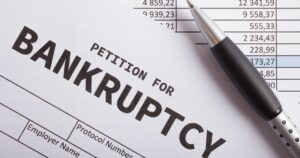Do you need help cleaning up your consumer credit report? Your consumer credit report can determine everything from getting approved for a home loan, to getting money for your education, to getting a job.
Five percent of consumers in the United States have errors on their credit report that could lead to unfair denials, says the Federal Trade Commission (FTC). Once these errors are corrected, most consumers notice an increase in their credit score and the quality of loan products they receive (i.e., better interest rates and terms).
How Can a Consumer Clean Up a Credit Report?
If you have a low credit score or you are denied new credit, look at your credit report. While your report might not have false accounts, small errors, such as missed payments, higher balances than you have, and other details could lower your credit score.
Due to the likelihood of errors, you should review your credit report once a year. Here are standard mistakes to look for when you do:
- Information that does not belong to you. A credit reporting agency can confuse a name or address and list someone else’s information on your credit report. This is more likely if you have a common name, such as Jane Smith. Regardless, you can dispute the data, and have it removed.
- Outdated information. Just because specific items are supposed to drop off your credit report after so many years does not mean that they will. Instead, you may find items that should have been removed years ago are still present. Therefore, you will need to contact the agency responsible for the report and notify them that the item needs to be removed.
- Payment status errors. Payment statuses, such as in collections, unpaid, missed or late payments can have a detrimental impact on your credit score. When you notice an error, first dispute it with the creditor and request that they correct it. If they refuse, submit a complaint with the credit reporting agency – but make sure to include proof of the error. For example, if you have evidence you made the payment, but the company reports a missed payment, you can supply cashed checks or bank records showing that the payment was made.
- Multiple delinquent dates. When a company sells your debt to a third-party collector, there may be two entries on the report. More so, the delinquent times may be different. Often, the debt collector’s delinquency date is the date of their purchase – not when the account went delinquent. You can dispute these errors and various times so that a company cannot keep the delinquent account on your credit report longer than allowed.
- Delinquencies that were remedied. Sometimes, credit reporting agencies will not rectify accounts that were satisfied. For example, you had an account in collections, but you paid it in full. Yet, your credit report stills show the account open and unpaid.
Cleaning Up after Bankruptcy
A credit report after bankruptcy can contain multiple errors. However, one item that can remain on your credit report for 10 years after discharge is your bankruptcy. Each debt in the bankruptcy should have a zero balance, but delinquencies can still be reported; therefore, you cannot remove delinquencies on those accounts.
Overwhelmed with Debt? Consider Your Options
If your credit report is a mess because you have multiple missed payments, collections, and you cannot keep up with your credit obligations, speak with an attorney.
Sometimes, filing for bankruptcy is the best way to get back in control of your finances. Our attorneys can help you explore your options. Contact us today for a no-obligation consultation.

